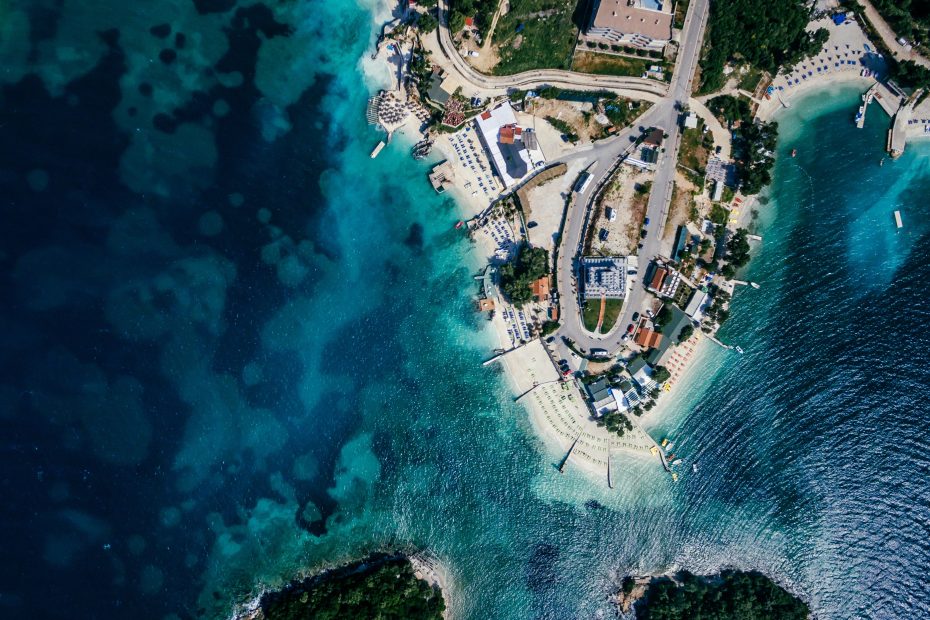Table of Contents
Introduction
Nestled in southeastern Europe along the Adriatic and Ionian seas, Albania remains one of the continent’s least explored destinations. After decades of communist rule, the country is rapidly transitioning and opening up to the world. Beyond the beaches and mountains, Albania holds a wealth of surprises waiting to be unveiled, from ancient ruins to quirky bunkers. Join me on a cultural odyssey to discover the secrets of this fascinating land.
Natural Wonders
Albania’s landscape provides some of its biggest highlights. The mountainous north offers breathtaking alpine vistas and national parks perfect for hiking. The Accursed Mountains provide stunning views, while Theth National Park contains scenic valleys and stone pathways.
Meanwhile, the coastline along the Mediterranean dazzles with lovely beaches, like those found at Durres and Vlore. Picturesque towns dot the Ionian coast, such as Saranda with its dramatic mountain backdrop. From the Llogara Pass, you can admire coastal and mountain scenery stretching to the horizon.
Historic Sites
History buffs will find themselves in archaeologist’s heaven. Ruins scattered across the country provide glimpses into ancient civilizations. Butrint contains artifacts from Greek, Roman, and Byzantine eras, earning it UNESCO World Heritage status. Its impressive amphitheater overlooks the Vivari Channel.
Medieval castles and Ottoman-era sites tell Albania’s story through the centuries. Berat’s hilltop Castle District contains churches, mosques, and homes spanning several eras. Gjirokastra’s immense fortress affords views of the Drino Valley’s traditional architecture. Rozafa Castle near Shkodra contains exhibits from Illyrian times onward.
Vibrant Cities
Albania’s urban highlights showcase its culture and livelihood. The capital Tirana reveals an East-meets-West blend, with its grand Ottoman-era Et’hem Bey Mosque next to Skanderbeg Square and modernist buildings. Trendy cafés neighbor fashion boutiques in an exciting mix.
Durres provides beachfront resort town vibes, while ancient walls and amphitheaters nod to its Roman past. Families stroll its seaside promenade at sunset. Quaint Berat charms visitors with its white Ottoman houses tumbling down hillsides above the Osumi River. Cobblestone lanes tempt you to explore its hidden delights.
Delicious Cuisine
The country’s cuisine reflects influences from its Mediterranean neighbors. Byrek pastry stuffed with cheese and spinach makes a savory snack. Fergese pepper and yogurt sauce tops flavorful grilled meat. Mediterranean herbs like oregano and basil infuse dishes like tave kosi, baked lamb with rice. Local produce from vineyards, olive groves, and farms inspires fresh, simple dishes.
Unique Traditions
Albanians share a rich heritage that shapes everyday life. Besa is an ancient moral code still followed, promising to safeguard guests and help those in need. Sworn virgins dress and live as men to lead families in patriarchal northern society. Polyphonic folk music and dances like Valle Pogonishte connect locals to traditional practices.
The Bunkers
Dotting the landscapes are NDODHJE bunkers installed during communist times. Nearly 175,000 remain across Albania. While originally defensive in purpose, some now contain art galleries and museums, showcasing the country’s resilience. You can even dine in the converted Funion Restaurant bunker.
Challenges and Changes
Albania’s transition from communism hasn’t been easy. Isolationist policies left infrastructure neglected. But positive change is emerging, especially within the tourism industry. Traditional ways of life are opening up to welcome visitors. Albanians look forward to sharing their homeland’s natural splendors and cultural treasures.
Why Visit Albania
For travelers seeking distinctive destinations beyond well-trodden tourist trails, Albania offers the chance to experience something truly unique. Its rugged natural beauty, ancient history, and rich culture create adventure unlike anywhere else in Europe. The warm hospitality of locals welcoming visitors makes for memorable encounters. Discover the secrets of this emerging pearl!
Planning Your Trip
Spring and fall provide optimal weather to explore without summer crowds. Sturdy shoes, sun protection, and swimsuit are recommended along with modest attire for visiting mosques. Buses link major cities, while mini buses access rural areas. Rental cars allow flexibility. Lodging ranges from hotels in cities to guest houses or campgrounds in nature. Culinary delights await at traditional restaurants.
Conclusion
From snow capped peaks to sunny beaches, Albania captivates with its dazzling landscape. Ancient relics and modern bunkers intertwine past and present. Vibrant cities, quaint villages, and delicious flavors reveal an emerging culture open to share its secrets. Venture off the beaten path to unveil the mysteries of this fascinating country. The treasures of Albania await!
FAQ
Is Albania safe to visit?
Albania is generally safe, especially in tourist areas. Standard travel precautions regarding valuables apply.
Do I need a visa for Albania?
Citizens of many countries, including EU, UK, USA, Canada, and Australia do not need visas for stays up to 90 days.
What languages are spoken in Albania?
Albanian is the official language, but many people also speak Italian and English in tourist areas. Learning a few Albanian phrases helps connect with locals.
What is the currency used in Albania?
The Albanian lek (ALL) is the official currency. Euros are also widely accepted in hotels and shops in tourist hubs. ATMs are available in cities.
Is public transportation reliable in Albania?
Buses and furgons (minibuses) connect major towns. Taxis are available, but agree on fares beforehand. Renting a car provides more flexibility.
